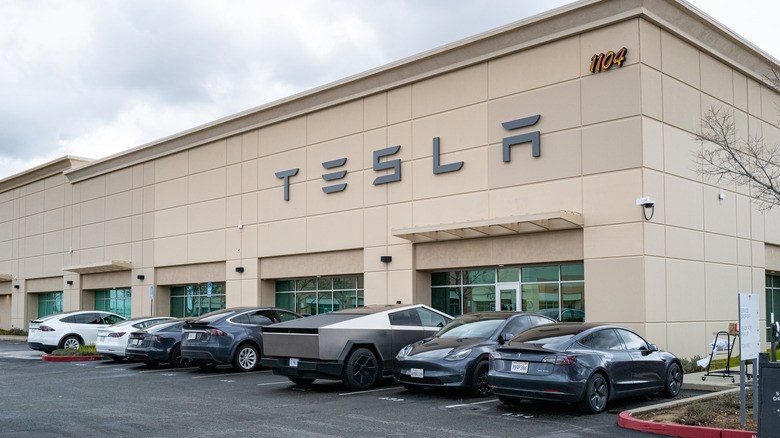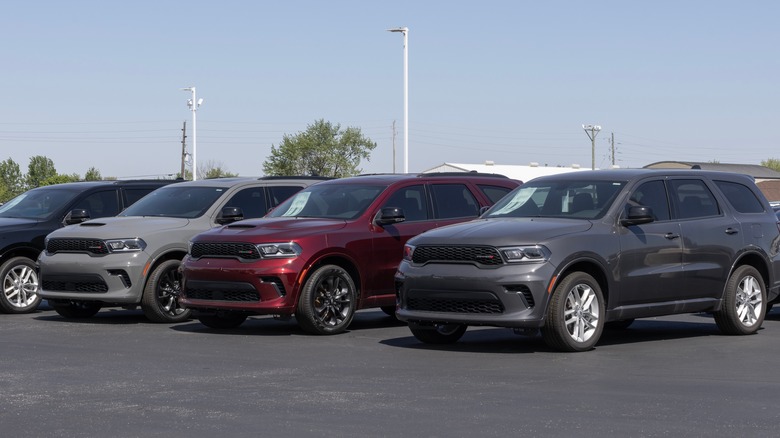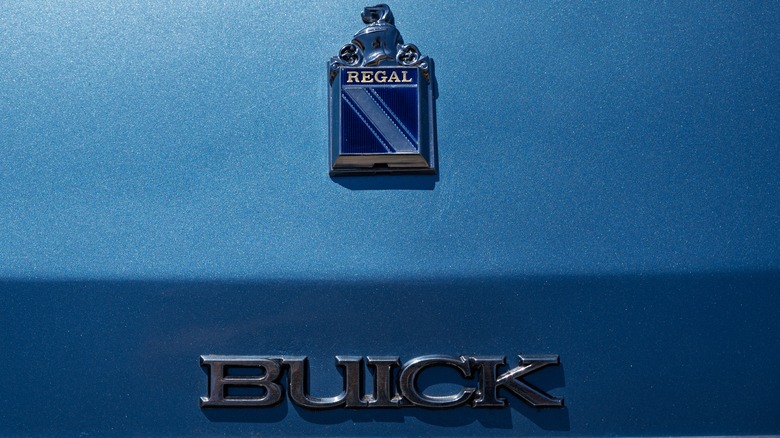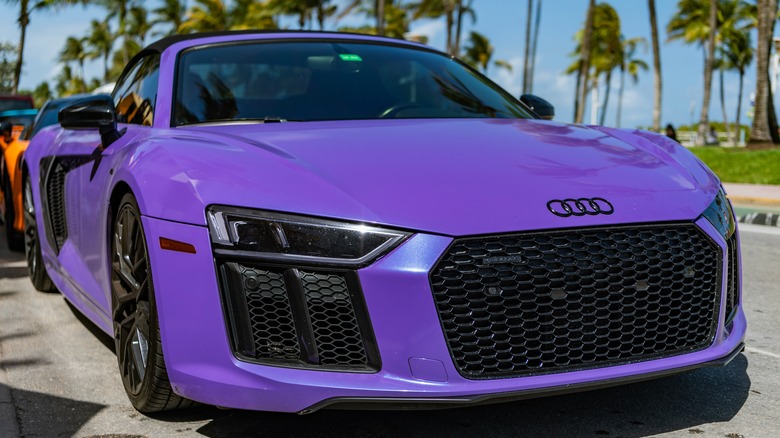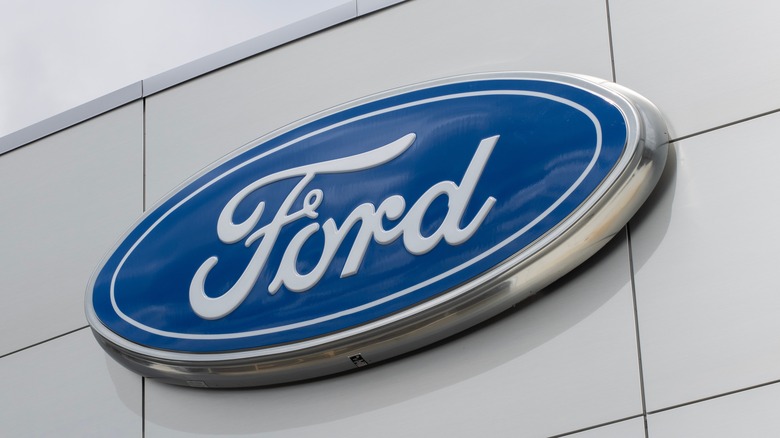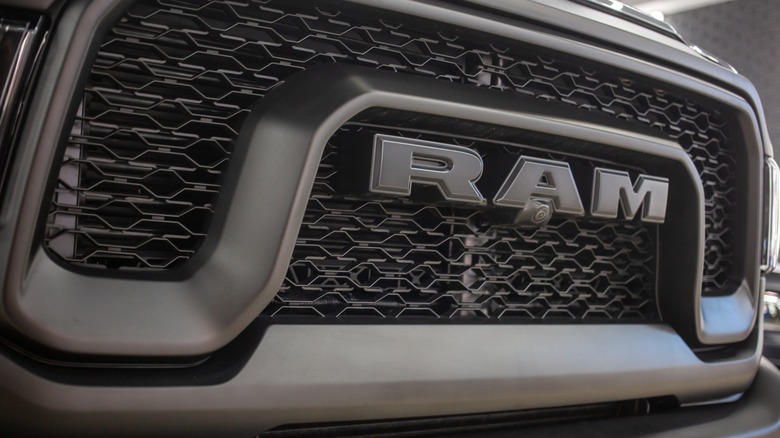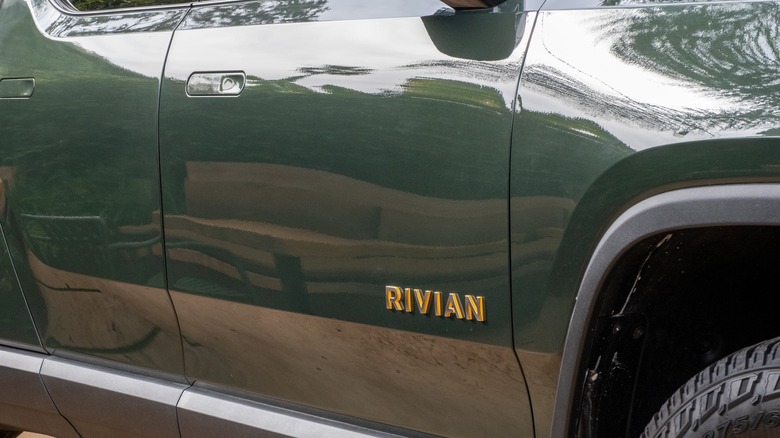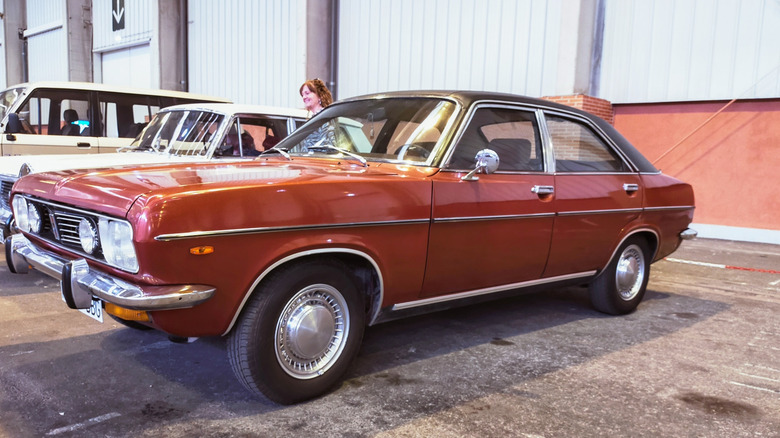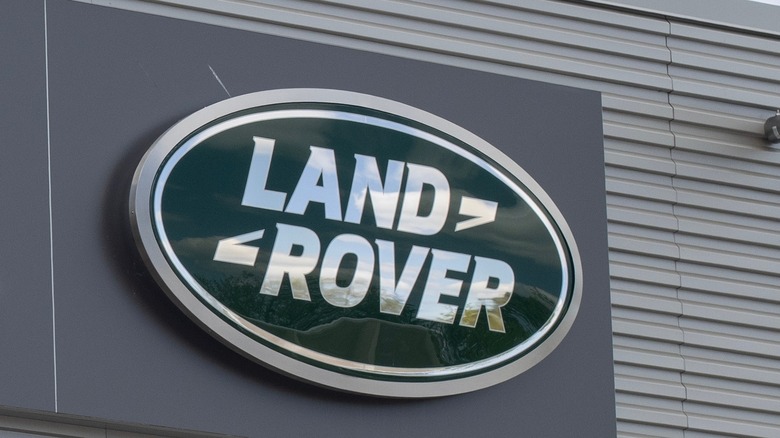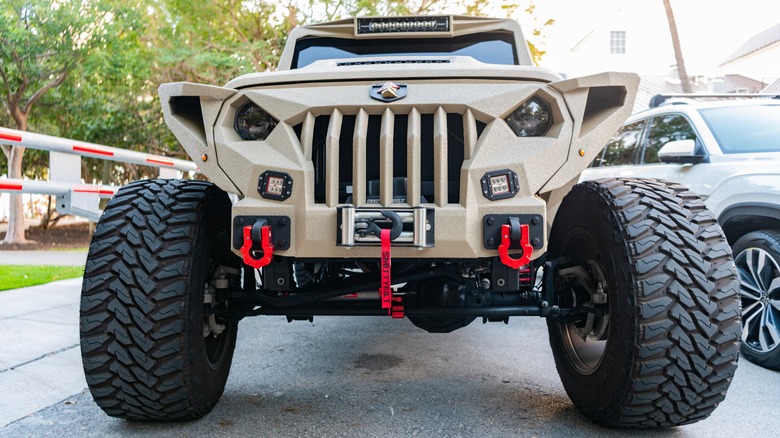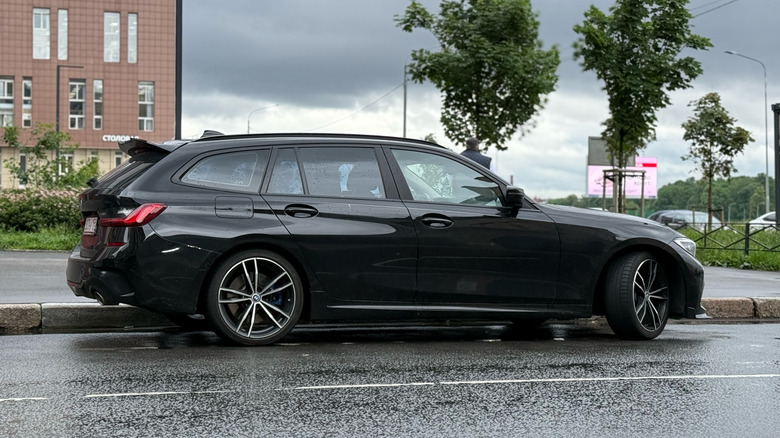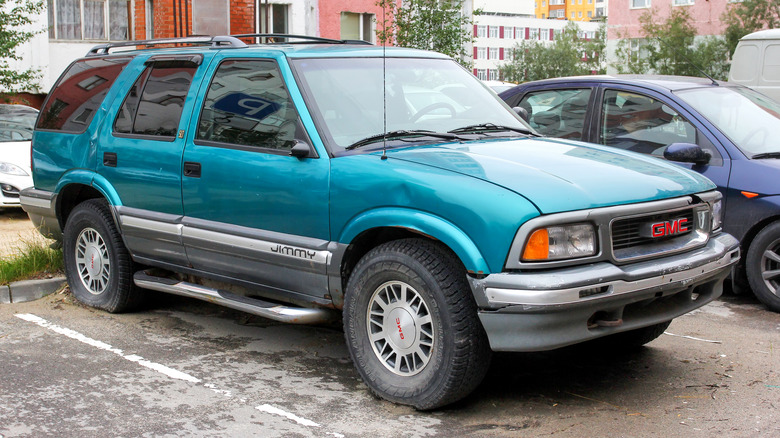Car Brands Retirees Will Instantly Regret Buying
The idea that there are some car brands retirees will instantly regret buying may seem over the top. After all, aren't all popular vehicles reliable enough to drive in your golden years? Not quite. Many people are dissatisfied with their vehicle, meaning a little bit of scrutiny during the research phase could have saved them valuable time, energy, and money. A TrueCar survey found that 41% of Americans settle for or hate their current vehicle. That means more than four out of every 10 people actively wish they were driving something else. Therefore, it is entirely reasonable for retirees to be deliberate when choosing a new car.
Along with all the common household items you should sell before retirement, you'll likely be ready to downsize your vehicle. Whether you're looking for something economical to protect your nest egg or something practical to get around, you should definitely research car brands in general, not just individual models. Don't assume that all well-known automakers are reliable. Many big-name companies have fallen off in terms of quality, safety, and efficiency. Yet, even brands that meet these standards might not be the best option for seasoned drivers.
When deciding which car brands to avoid in retirement, it's advisable to consider affordability, safety, fuel efficiency, reliability, and durability. Sometimes, knowing what not to look for is just as important as understanding what you need.
Tesla
As a young automakers, Tesla has rapidly earned a reputation as a leading innovator in the fast-expanding electric vehicle (EV) space. However, these impressive successes don't make up for Tesla's many shortcomings, which make it a poor vehicle choice for pensioners. The company's undeniable financial strength translates into very expensive models and costly upkeep. Teslas vary dramatically in price between $32,490 and $125,490 — a tough price to justify when retirees can opt for a used car for less than $25,000.
The higher cost of owning a Tesla doesn't end at the car lot, either. These EVs are known for above-average ongoing expenses due to their specialized components, high level of computerization, and small market for parts. Ironically, Tesla's differentiators end up costing owners more in the long run. For example, the average repair is $950 more than for other vehicles. Beyond costly maintenance, many Teslas are plagued by recalls, partially because of the company's innovative edge and partially due to the pressure to release new models frequently. With complicated and expensive maintenance, Teslas don't make the best cars for seniors.
Fiat
On the surface, Fiats seem like the perfect solution for retirees who are looking to downsize their day-to-day lives and cut back on monthly expenses. After all, these Italian cars fulfill all the stereotypes of European vehicles: They're economical, extremely compact, and a blast to drive. Yet, these small vehicles give up some serious ground in the safety space in order to achieve these other features, putting retirees at risk. Unless you're planning to retire in Europe, you may want to think twice about taking this tin box on American highways, dominated by monstrous SUVs and trucks.
The Fiat 500L holds the unenviable position as one of the least reliable new cars, according to Consumer Reports. It's commonly at the bottom of the barrel regarding reliability, even when stacked against similar-sized models. The majority of Fiat 500L owners reported regretting their decision to buy the vehicle, signaling they wouldn't make the mistake again. On the issue of safety, this popular model had a lackluster performance on Insurance Institute for Highway Safety frontal crash tests. In terms of comfort, people often complain about the oddly shaped and uncomfortably low seats.
Dodge
Despite offering an impressive lineup of models, Dodge still falls short on many of the metrics pensioners should consider. The average Dodge vehicle will eat into your nest egg by $11,352 in the first decade of servicing — $3,049 higher than the standard average. Plus, Dodges bring with them a 32.01% chance of requiring a repair costing $500 or more in the same period, according to Car Edge. While dealerships and service centers that work on Dodge vehicles are easy to find, the goal is to avoid these places as much as possible.
In terms of reliability, Dodge doesn't shine much brighter. Repair Pal gives this brand a 3.5 out of 5 for overall reliability. That puts Dodge 19th out of a total of 32 different automakers. This rating took 345 different Dodge models into account, meaning the entire lineup is considered only moderately reliable. The report found that Dodges are more likely to experience a major issue compared to other brands, too.
Buick
Buicks have fallen out of favor among younger generations, and it's time for retirees to catch on. This once-popular manufacturer has undergone some considerable changes over the past few years. In the past, Buick was known for its standard, four-door sedans. Now, the brand has shifted to focusing almost solely on mid-size and full-size SUVs, tapping into a growing demand for these types of vehicles. Unfortunately, they don't make the best options for retirees who are looking for comfort and simplicity. The IIHS has found that newer SUVs, designed with tighter windshields and smaller rear windows, do cause visibility issues. The report even floated a potential link between this reduced visibility and an uptick in deaths among people walking and biking on the street.
Maintenance costs are a figurative blind spot for Buicks that retirees should also be fully aware of. While not costing quite as much as other brands on this list, this automaker still designs cars that require more of an investment to maintain. In the first 10 years of ownership, you can expect to dedicate around $9,018 toward simply keeping your Buick running — $715 above the average. There's also more than a 25% chance your car will suffer damage that will cost more than $500 to repair during that time, Car Edge points out.
Audi
Audi is famed for its sporty ride and luxurious designs, which can come at the cost of comfort and affordability for seniors. A lower ride height in many of the models could present a daily challenge to those who are less mobile. Furthermore, Audis have a reputation for uncomfortable rides when compared to other brands with more suspension. While you can adjust the ground clearance and shocks within the vehicle, these changes are quite costly, or labor-intensive if you attempt to do it yourself.
Audi's aren't only expensive from the onset. These high-end sports vehicles are also a financial challenge to maintain. Retirees can expect to pay about $1,000 annually for routine upkeep and maintenance, according to Car Edge. Total maintenance expenses vary between models, but costlier vehicles tend to weigh heavily on your savings in the long run. Some of the most routine issues found in Audis include vacuum leaks, defective catalytic converters, and blown oxygen sensors — none of which are cheap fixes. Altogether, Repair Pal puts Audi in the 28th spot out of 32 automakers in terms of reliability.
Ford
Ford long stood as a paragon of American automotive innovation.Recently, Ford made the top 10 of Consumer Reports' most unreliable cars, in part due to a high number of recalls. These have included everything from excessively bright lights and exploding airbags, causing accidents and even deaths. Overall reliability for Fords was placed at 44 out of 100. These shortcomings take on a dimmer light when considered against the rising cost of these vehicles, which average $54,913, according to Car Edge.
Ford's waning veneer as the toughest brand on or off the road doesn't reflect the true maintenance costs. The 10-year average repair costs for these models are $10,392. That figure exceeds the industry norm by $2,089, highlighting the financial burden of owning a Ford. While better than some other brands on this list, a Ford still faces a decent chance of throwing a $500 unforeseen repair cost on the laps of retirees, according to the Car Edge report.
Ram
Rams appear tough on the exterior, but their components tend to wear quickly. According to Car Edge, the average maintenance cost for these vehicles is nearly double the industry average. The typical Ram owner spends an eye-watering $21,595 in their first decade of driving the vehicle. That's more than many cars cost, especially if you're buying used. This 10-year service bill is a stunning $13,292 higher than average. Furthermore, Rams have a 63.32% of needing a fix that costs $500 or more in the same time frame. You don't want an unnecessarily high-maintenance vehicle to become one of the warning signs that you're not financially ready to retire.
Another reason Ram could easily be one of the car brands retirees instantly regret buying is the sheer size of the company's vehicles. This automaker has become synonymous with oversized trucks with high ground clearances, tall wheels, and wide fronts. With falls being one of the leading causes of accidents among older populations, these awkwardly-sized trucks can present a daily risk for elderly folks, even those with no mobility issues. Besides, driving something so heavy and large is impractical for use as an everyday vehicle.
Rivian
Rivian falls victim to many of the same shortcomings as Tesla. These EVs start at more than $70,000, far above the industry average. Yet, larger, more luxurious models easily double up to $140,990. As Consumer Affairs points out, most Rivian models being driven right now still have extremely low mileage due to their novelty. The brand only started selling to the general public in the past few years, leaving a lot of unanswered questions about their long-term reliability, maintenance costs, and lifetime safety. Generally, Rivians have been found to cost more than the average Tesla to maintain.
Similar to all EVs, these vehicles burn through tires relatively fast because of their impressive acceleration and exceptional weight compared to the average gas or diesel-powered model. While some new, high-end EV companies provide free maintenance to gain a competitive edge, Rivian owners are on their own, navigating a new industry with few parts in circulation and highly specialized knowledge required for repairs. With EVs being less-than-ideal choices for pensioners and the brand's unique hurdles, Rivian is one of the car brands retirees may instantly regret buying.
Chrysler
We've established that the Chrysler Pacifica is one of the worst models for retirees, but this warning can extend to the entire lineup. Once a favorite in the U.S. auto industry, Chrysler has fallen short over the years in many areas that matter to retirees. Similar to other brands on this list, unreasonable maintenance costs stand out as a major impediment to ownership, Car Edge points out. The standard model runs up a maintenance bill of $11,367 over the initial 10 years, which is $3,064 more than comparable brands. On top of that, Chryslers hold a 32.82% likelihood of demanding a serious repair costing at least $500 in the first decade of ownership.
In addition to high servicing costs, Chrysler has seen a litany of recalls over the years, adding to reliability and safety concerns. Some of the most egregious and widespread issues involved defective cruise control systems, stalling engines, unintentional gear shifting, and prematurely deployed airbags.
Land Rover
Land Rovers might catch the attention of retirees looking for something that mixes capability, sportiness, and extravagance. There's no denying that these high-end SUVs check all of these boxes, but you don't want to overlook where these models fall short. To achieve their off-road proficiency, Land Rover tends to produce larger vehicles with higher clearances and ride heights, making them potentially challenging for those with limited mobility. This above-average height can turn something as simple as getting in and out of your vehicle into a physical feat and an injury risk. That's one of the main reasons the Land Rover Discovery Sport is one of the worst vehicles retirees can buy.
Awkward sizing isn't the only reason Land Rover is a car brand retirees should avoid. Overall cost is another downside to consider. Aside from their notorious priciness, these cars are a serious investment in the long run. The average owner can expect to cough up $9,000 annually for routine maintenance and upkeep, according to Steve's Imports. Besides this, Land Rovers also plummet in value, meaning your initial investment will depreciate rapidly. For example, a Range Rover, one of the brand's most popular models, nosedives by 76% in value within half a decade.
Jeep
Jeeps have a cult-like following. How else do you explain the obligatory Jeep wave, the unquestioning loyalty, and the row of ducks cluttering the windshield? All jokes aside, this American favorite has earned a reputation as an all-terrain, high-performing, and genuinely enjoyable ride. However, these vehicles don't hold up to much scrutiny when you look under the hood from the perspective of retirees. A survey by Consumer Reports found that over half of Compass and Grand Cherokee owners would not buy a Jeep model again, putting these cars among the least satisfying vehicles.
Part of this disillusionment with Jeep vehicles is routine maintenance issues, according to Car Edge. This is reflected in the average cost of upkeep, which hovers around $11,690 for the first 10 years of ownership. With a Jeep, retirees would be paying $3,387 above the industry standard for repair. In other words, you're overpaying several grand just to keep your car running. That doesn't sound like the financial recipe for a comfortable retirement. To make matters worse, the average Jeep model has a 32.59% chance of requiring a serious repair in the first decade.
BMW
On the surface, BMWs seem to exhibit all of the sought-after characteristics of Germany's famed auto industry: efficiency, performance, and style. Notice that none of these factors pertains to the affordability, safety, and reliability that are crucial to vehicle ownership in retirement. The look of a fancy BMW might turn heads, but it's bound to deliver some unwelcome back pain. The sporty design isn't conducive to driving as you age. Low ride heights mean having to bend lower than normal to enter and exit the vehicle. Plus, the bucket seats aren't known for being easy on hips or legs.
If you've ever driven past a BMW dealership, you know the starting cost of these opulent models. Yet, even owning these cars threatens to break the bank. A standard model is going to set your nest egg back $15,991 in the first decade of ownership, according to Car Edge. That mind-boggling expense is far beyond the norms and even $4,000 above the average cost of upkeep on luxury cars. During the first 10 years, a BMW has a 47% likelihood of needing a serious repair. Overall, Repair Pal measures BMW's reliability at 2.5 out of 5, not signaling much confidence in the European automaker. Those pensioners who have dreamed about zooming into their golden years with this brand should consider cheap BMW alternatives that won't break the bank.
GMC
GMC has long used evocative slogans, such as "We Are Professional Grade" and, more recently, "Like a Pro," to highlight the commercial capabilities of its vehicles. However, most retirees care more about affordability and safety. GMC vehicles cost about $9,467 in repairs over the first 10 years of ownership, about $1,164 higher than the industry average, according to Car Edge. Furthermore, most models face a nearly 30% of requiring a $500 fix within that same time frame. A vehicle shouldn't be the most major expense when planning for retirement.
In addition to costly maintenance, GMC struggles with reliability and safety. The big-name brand has been subject to several high-profile and expensive recalls over the past few decades as federal agencies and class-action lawsuits revealed vehicle defects over time. Some of these oversights were minor, impacting a handful of models or production years. Others affected millions of cars and caused numerous injuries and even deaths. For example, the popular automaker had to pull 3.64 million cars off the road because of defective airbags in 2016, according to Kelly Blue Book. A similar problem in 2014 involved the recall of at least another 1 million vehicles. Don't be fooled by the dates of these recalls, either — many are still ongoing.

